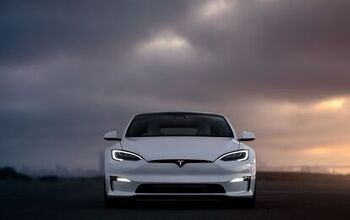3 Views
FoMoCo, Lincoln Dealers Face Off Over Buyouts And Upgrades
by
Edward Niedermeyer
(IC: employee)
Published: October 25th, 2010
Share
With Mercury going the way of Olds and Pontiac, Ford has made much of its intentions to turn its struggling Lincoln brand around. Ford has promised a $2b investment in Lincoln’s product line, and is pushing for the closure of 200 or so Lincoln dealers in order to concentrate the brand’s weak sales at its most successful dealers. But that’s not all. Ford is requiring the surviving Lincoln dealerships to invest heavily, as much as $2m per store, to stay on board the Lincoln Revival Express. But, according to Automotive News [sub], the Lincoln dealers are starting to wonder if they’re being asked for too much. One dealer tells the industry paper
They told us there would be no new products for about 24 months. I don’t know how the stand-alone Lincoln dealers are going to make it, especially those dealers who have to spend $2 million on their upgrades.Ford has offered several Lincoln stores between $300k and $1.5m to give up ideally-located franchises that they refused to upgrade, but it seems that few dealers are simply rolling over. In fact, the dealer who was offered $1.5m rejected Ford’s offer, calling it “very low” for his profitable franchise. And that’s the polite response. A dealer who was offered less tells AN“Insulted” isn’t a harmful enough word to describe it. It’s asinine. I’m getting my numbers together and going back. I’m not going to accept this.Ford, for its part, says the “status quo is not an option,” a position that puts the factory and dealers in place for a nice round of brutal negotiations. And since Ford lacks to the tools to force its entire network to update, it will either have to pay up or live with at least a few remnants of the status quo. And as long as Lincoln’s products remain largely status quo, that’s probably the way it should be.Edward Niedermeyer
More by Edward Niedermeyer
Published October 25th, 2010 9:37 AM
Latest Car Reviews
Read moreLatest Product Reviews
Read moreRecent Comments
- Danddd Or just get a CX5 or 50 instead.
- Groza George My next car will be a PHEV truck if I can find one I like. I travel a lot for work and the only way I would get a full EV is if hotels and corporate housing all have charging stations.I would really like a Toyota Tacoma or Nissan Frontier PHEV
- Slavuta Motor Trend"Although the interior appears more upscale, sit in it a while and you notice the grainy plastics and conventional design. The doors sound tinny, the small strip of buttons in the center stack flexes, and the rear seats are on the firm side (but we dig the ability to recline). Most frustrating were the repeated Apple CarPlay glitches that seemed to slow down the apps running through it."
- Brandon I would vote for my 23 Escape ST-Line with the 2.0L turbo and a normal 8 speed transmission instead of CVT. 250 HP, I average 28 MPG and get much higher on trips and get a nice 13" sync4 touchscreen. It leaves these 2 in my dust literally
- JLGOLDEN When this and Hornet were revealed, I expected BOTH to quickly become best-sellers for their brands. They look great, and seem like interesting and fun alternatives in a crowded market. Alas, ambitious pricing is a bridge too far...


































Comments
Join the conversation
Basho. Here's what history can tell us. The last time Ford only had two brands -- and it happened to be these two brands -- was in the mid-Thirties. They took Lincoln downscale with the Zephyr. They had to compete with Packard's110/120, Cadillac's Sixty (source of LaSalle's demise), the mainstream Chryslers were separated from the Imperials, etc. Priced just a bit above Buicks, these were the "near-luxury" cars of their day and kept some brands alive. While the Zephyr proved to be a dog that couldn't hunt, it morphed into the beautiful and luxurious Continental. The masses ended up with Mercury as the aspirational step-up brand from Ford. So what's the takeaway? Does Ford start the same thing all over again, or just be Ford?
The one other point I forget to add was last week's Curbside Classic, the 1961 Ford Thunderbird. OK, it's been 50 years, but doesn't its success (and that of more recent niche stuff like the Shelby, Ford GT, etc.) prove the public may be willing to pay premium prices for a superior product with the Ford brand name on it?